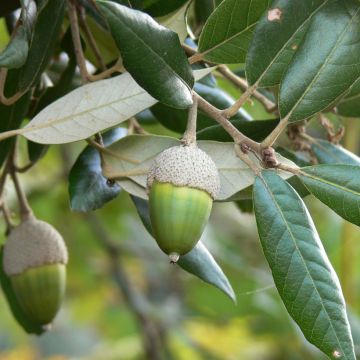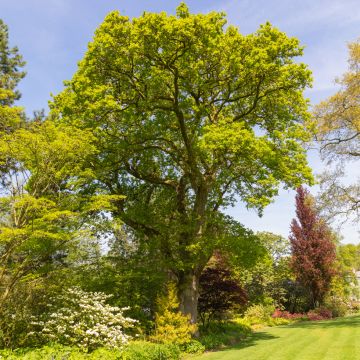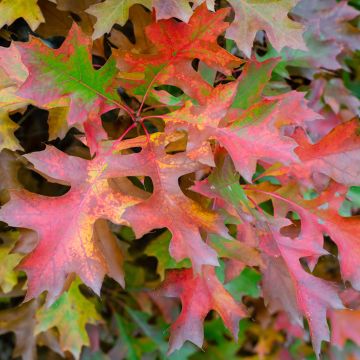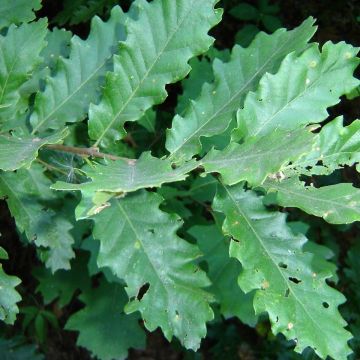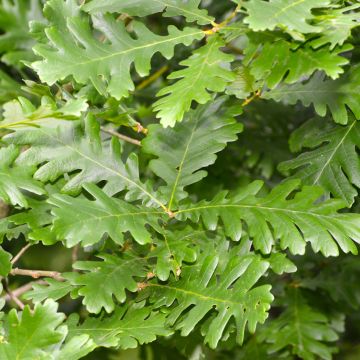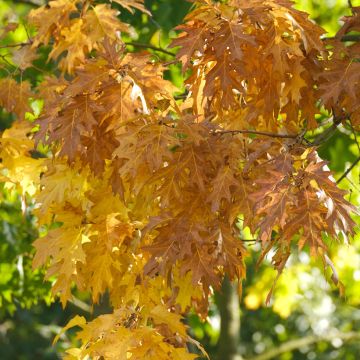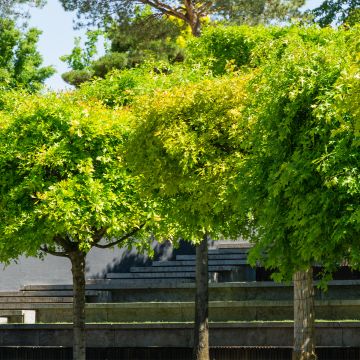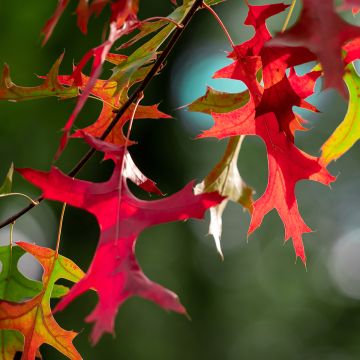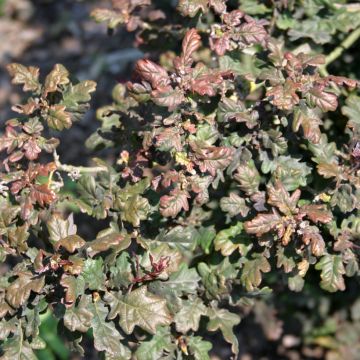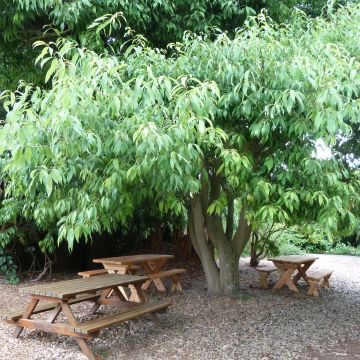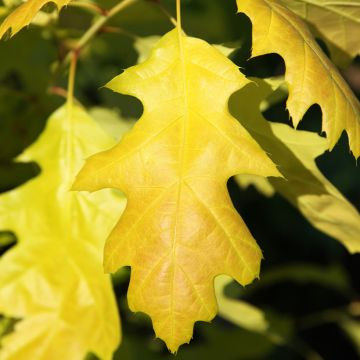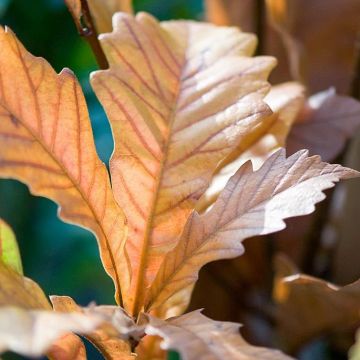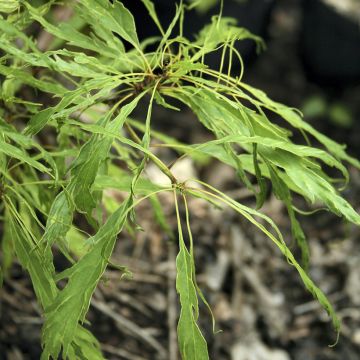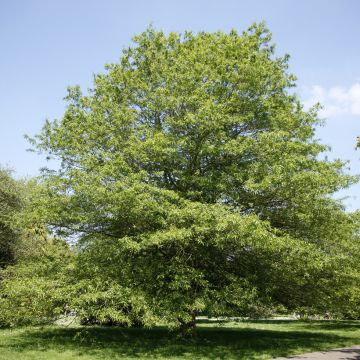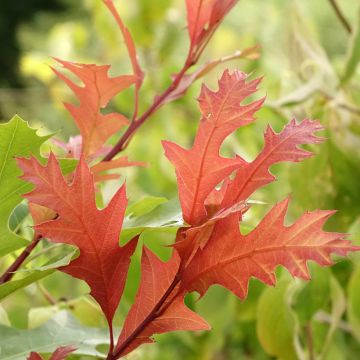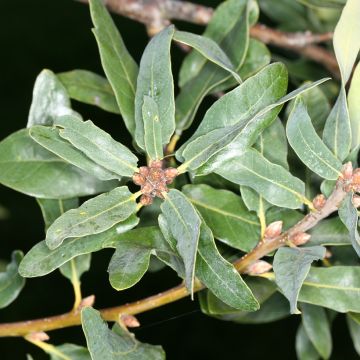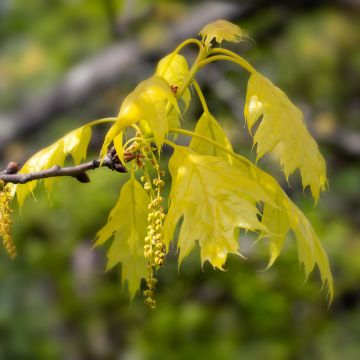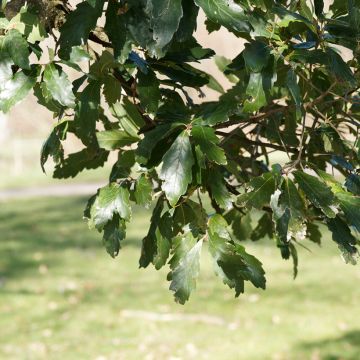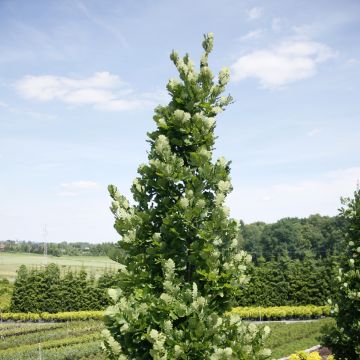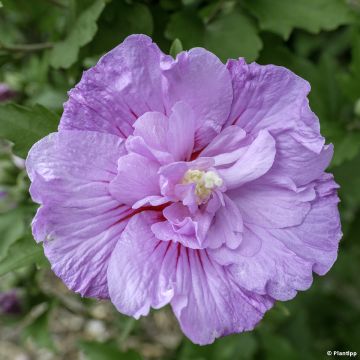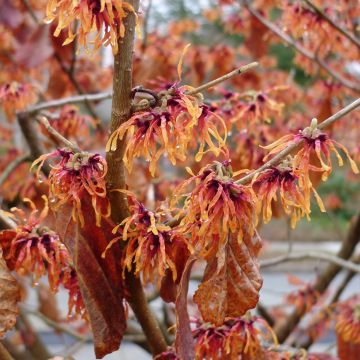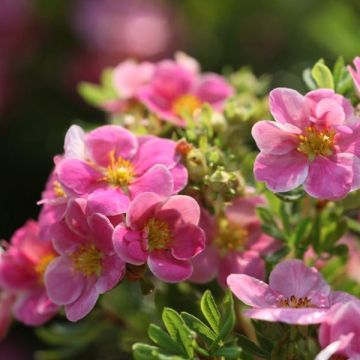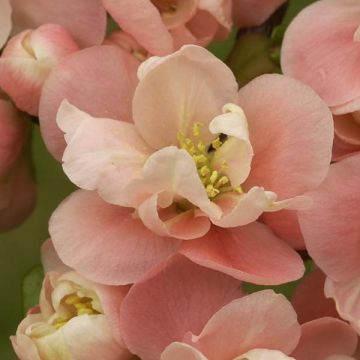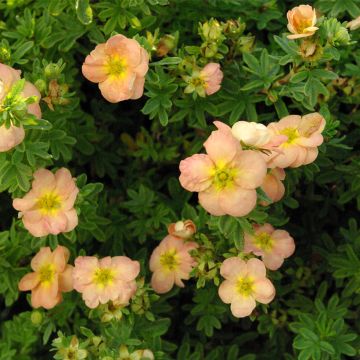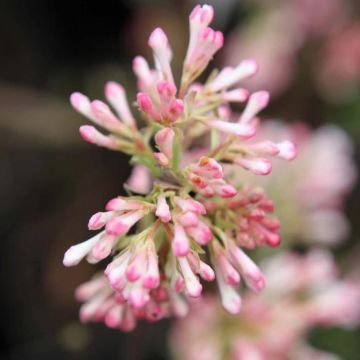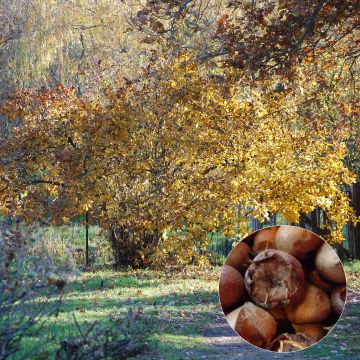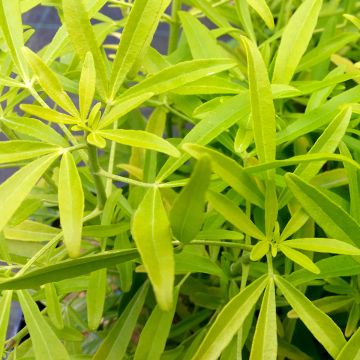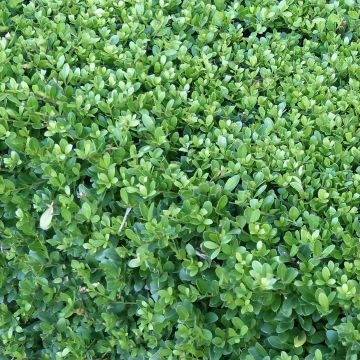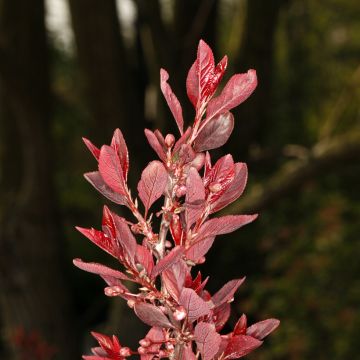Shipping country and language
Your country of residence may be:
Your country of residence is:
For a better user experience on our website, you can select:
Your shipping country:
-
Andorra
-
Austria
-
Belgium
-
Bulgaria
-
Canada
-
Chile
-
Croatia
-
Cyprus
-
Czechia
-
Denmark
-
Estonia
-
Finland
-
France
-
Germany
-
Greece
-
Hungary
-
Iceland
-
Ireland
-
Italy
-
Latvia
-
Lithuania
-
Luxembourg
-
Malta
-
Monaco
-
Netherlands
-
Poland
-
Portugal
-
Romania
-
Slovakia
-
Slovenia
-
Spain
-
Sweden
-
Switzerland
-
United Kingdom
We only deliver seed and bulb products to your country. If you add other products to your basket, they cannot be shipped.
Language:
-
French
-
German
-
Spanish
-
English
-
Italian
My Account
Hello
My wish lists
Log in / Register
Existing customer?
New customer?
Create an account to track your orders, access our customer service and, if you wish, make the most of our upcoming offers.
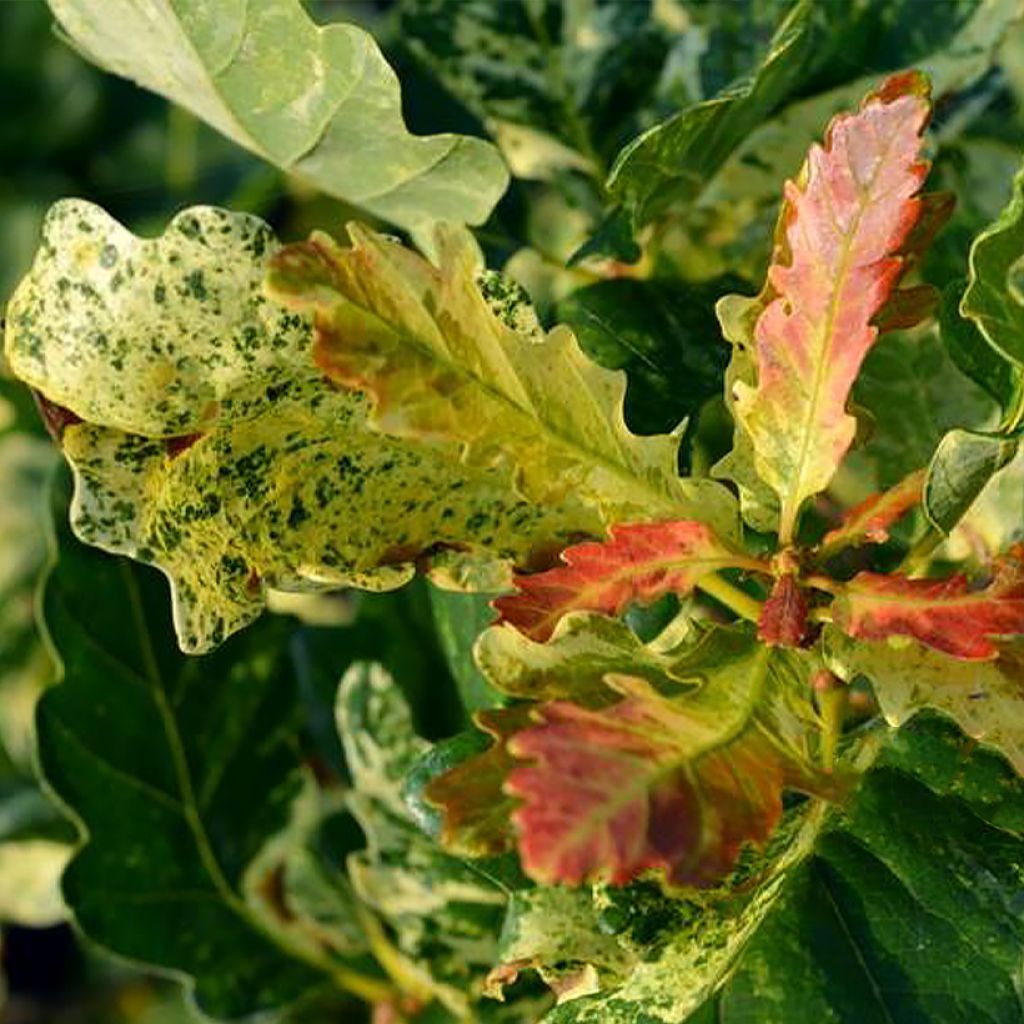

Quercus petraea Włodzimierz Seneta - Sessile Oak
Quercus petraea Włodzimierz Seneta - Sessile Oak
Quercus petraea Włodzimierz Seneta
Sessile Oak, Durmast Oak
Why not try an alternative variety in stock?
View all →Order in the next for dispatch today!
Dispatch by letter from €3.90.
Delivery charge from €5.90 Oversize package delivery charge from €6.90.
More information
This item is not available in your country.
Schedule delivery date,
and select date in basket
This plant carries a 24 months recovery warranty
More information
We guarantee the quality of our plants for a full growing cycle, and will replace at our expense any plant that fails to recover under normal climatic and planting conditions.
From €5.90 for pickup delivery and €6.90 for home delivery
Express home delivery from €8.90.
Does this plant fit my garden?
Set up your Plantfit profile →
Description
Quercus petraea Włodzimierz Seneta is a recent Polish variety of English oak (or sessile oak). Resembling the typical species in its morphology, its development is more modest and its growth slower. It is therefore better suited for planting in gardens. This tree, reaching a height of about twelve to fifteen metres at maturity, is extremely ornamental due to its foliage. In spring, the young leaves have a delicate pinkish hue, then as they grow, they take on their characteristic lobed shape. Their colour is much more original, with various shades of green, mixed with white and yellow. Growing in neutral to slightly acidic soil, preferably in the sun, this tree is particularly hardy.
The sessile oak, also known as the English oak, durmast oak, rock oak, male oak, or black oak depending on the region, belongs to the Fagaceae family, like the chestnut and the beech. It is native to a large part of temperate Europe. It thrives in sub-oceanic to oceanic or continental climates, without excesses and not too dry. It grows spontaneously in hills and low mountains, where it can be found up to 1600 metres above sea level.
Włodzimierz Seneta is a Polish selection, discovered by Bronisław Jan Szmit and Wiesław Gawryś in 2005. They named it in honour of a renowned compatriot dendrologist. The commercialisation of this variety began in 2011 and in 2012, it received an award at the "Green is Life" Polish trade fair for new products. The growth of this oak is even slower than that of the typical species. Over time, it will reach a height of about 12 to 15 metres, with a spread of about 10 metres. The fairly short trunk is covered with initially green and smooth bark, which then becomes dark, thick, and slightly fissured. The crown is irregular in shape, oval, rounded, and open. Its young branches are smooth, grey-brown, and shiny. The foliage is remarkable and presents variable shades during the growing season. When they first appear in spring, the young leaves have a pinkish colour that they quickly lose as they unfold, taking on a green colour, more or less variegated with white and yellow. These irregular variegations, varying from one leaf to another, evolve during the season. The lobed leaves have the characteristic shape of the species and can sometimes be larger, up to 20 cm long. The leaves turn brown quite late in autumn and remain attached to the branches before falling. This oak flowers in April-May, shortly after the appearance of the foliage, on the annual shoots. The female flowers are located in a cup directly attached to the branch: this distinctive characteristic is the origin of the species name, sessile. The male inflorescences are elongated, pendulous catkins, tinged with yellow. They are produced at the base of the annual shoots. The female flowers, in the axils of the leaves, give way to ovoid and elongated, 1.5 to 3 cm long acorns. They are often grouped in pairs or threes, directly on the branches. A cup covered with scales covers one-third of the acorn. The colour changes from green to brown when ripe, in September and October.
The root system of this tree is deep and powerful, with both a taproot and a spreading root system, ensuring a solid and durable anchorage in deep and sandy soils. It prefers slightly acidic to neutral soils, sufficiently deep and fertile, with some moisture, but above all well-drained. Growing in the sun, it tolerates partial shade and is very hardy, down to at least -25°C.
This original variety brings a touch of elegance to the genus, and its smaller dimensions, compared to the botanical species, make it easier to plant in a garden. It will be magnificent as a solitary tree on a lawn and can also be a choice subject in the heart of a mixed bed. You can associate it with other plants with decorative foliage, such as Fagus sylvatica Midnight Feather, a small beech with very architectural, fine, and deeply cut leaves, of an intense purple that will strongly contrast with the white variegations of your oak. For abundant flowering, choose Rhododendron ponticum, a large shrub that will reward you with clusters of pinkish-purple flowers in May-June, while its dark green foliage will stand out well from that of Włodzimierz Seneta. And to add an unusual touch, plant Parrotia persica Persian Spire, a shrub whose foliage is purple when it bursts, turning to a surprisingly violet-margined green in summer, before a fiery autumn display of yellow, orange, and red. Not to mention its early flowering in the form of red stamens that appear directly on the bare wood.
Report an error about the product description
Plant habit
Flowering
Foliage
Botanical data
Quercus
petraea
Włodzimierz Seneta
Fagaceae
Sessile Oak, Durmast Oak
Western Europe
Other Oak
Planting and care
Quercus petraea Włodzimierz Seneta grows in ordinary but deep soil, moist at depth, preferably filtering, sandy and loamy, neutral or slightly acidic. But it is an accommodating oak, capable of growing in less favourable soils, clayey if they are draining or stony and slightly chalky if they are deep. However, it dislikes waterlogged soils. Once established, this tree with deep anchorage can withstand relatively dry summers and does not require any watering. This oak succeeds almost everywhere. It is very hardy, cultivated especially in Sweden and Poland. It appreciates moist, but well-drained soils, where its growth will be faster. It prefers sunny and well-cleared exposures, nevertheless, it also tolerates partial shade. Soak the root ball in a bucket for a quarter of an hour before planting, then water it abundantly. Place a sturdy stake and water for the first 2 years and then let nature take its course. Once established, it requires very little maintenance, except for the removal of dead wood. It is not very susceptible to diseases, only powdery mildew affects its foliage.
Planting period
Intended location
Care
This item has not been reviewed yet - be the first to leave a review about it.
Hedge shrubs
Haven't found what you were looking for?
Hardiness is the lowest winter temperature a plant can endure without suffering serious damage or even dying. However, hardiness is affected by location (a sheltered area, such as a patio), protection (winter cover) and soil type (hardiness is improved by well-drained soil).

Photo Sharing Terms & Conditions
In order to encourage gardeners to interact and share their experiences, Promesse de fleurs offers various media enabling content to be uploaded onto its Site - in particular via the ‘Photo sharing’ module.
The User agrees to refrain from:
- Posting any content that is illegal, prejudicial, insulting, racist, inciteful to hatred, revisionist, contrary to public decency, that infringes on privacy or on the privacy rights of third parties, in particular the publicity rights of persons and goods, intellectual property rights, or the right to privacy.
- Submitting content on behalf of a third party;
- Impersonate the identity of a third party and/or publish any personal information about a third party;
In general, the User undertakes to refrain from any unethical behaviour.
All Content (in particular text, comments, files, images, photos, videos, creative works, etc.), which may be subject to property or intellectual property rights, image or other private rights, shall remain the property of the User, subject to the limited rights granted by the terms of the licence granted by Promesse de fleurs as stated below. Users are at liberty to publish or not to publish such Content on the Site, notably via the ‘Photo Sharing’ facility, and accept that this Content shall be made public and freely accessible, notably on the Internet.
Users further acknowledge, undertake to have ,and guarantee that they hold all necessary rights and permissions to publish such material on the Site, in particular with regard to the legislation in force pertaining to any privacy, property, intellectual property, image, or contractual rights, or rights of any other nature. By publishing such Content on the Site, Users acknowledge accepting full liability as publishers of the Content within the meaning of the law, and grant Promesse de fleurs, free of charge, an inclusive, worldwide licence for the said Content for the entire duration of its publication, including all reproduction, representation, up/downloading, displaying, performing, transmission, and storage rights.
Users also grant permission for their name to be linked to the Content and accept that this link may not always be made available.
By engaging in posting material, Users consent to their Content becoming automatically accessible on the Internet, in particular on other sites and/or blogs and/or web pages of the Promesse de fleurs site, including in particular social pages and the Promesse de fleurs catalogue.
Users may secure the removal of entrusted content free of charge by issuing a simple request via our contact form.
The flowering period indicated on our website applies to countries and regions located in USDA zone 8 (France, the United Kingdom, Ireland, the Netherlands, etc.)
It will vary according to where you live:
- In zones 9 to 10 (Italy, Spain, Greece, etc.), flowering will occur about 2 to 4 weeks earlier.
- In zones 6 to 7 (Germany, Poland, Slovenia, and lower mountainous regions), flowering will be delayed by 2 to 3 weeks.
- In zone 5 (Central Europe, Scandinavia), blooming will be delayed by 3 to 5 weeks.
In temperate climates, pruning of spring-flowering shrubs (forsythia, spireas, etc.) should be done just after flowering.
Pruning of summer-flowering shrubs (Indian Lilac, Perovskia, etc.) can be done in winter or spring.
In cold regions as well as with frost-sensitive plants, avoid pruning too early when severe frosts may still occur.
The planting period indicated on our website applies to countries and regions located in USDA zone 8 (France, United Kingdom, Ireland, Netherlands).
It will vary according to where you live:
- In Mediterranean zones (Marseille, Madrid, Milan, etc.), autumn and winter are the best planting periods.
- In continental zones (Strasbourg, Munich, Vienna, etc.), delay planting by 2 to 3 weeks in spring and bring it forward by 2 to 4 weeks in autumn.
- In mountainous regions (the Alps, Pyrenees, Carpathians, etc.), it is best to plant in late spring (May-June) or late summer (August-September).
The harvesting period indicated on our website applies to countries and regions in USDA zone 8 (France, England, Ireland, the Netherlands).
In colder areas (Scandinavia, Poland, Austria...) fruit and vegetable harvests are likely to be delayed by 3-4 weeks.
In warmer areas (Italy, Spain, Greece, etc.), harvesting will probably take place earlier, depending on weather conditions.
The sowing periods indicated on our website apply to countries and regions within USDA Zone 8 (France, UK, Ireland, Netherlands).
In colder areas (Scandinavia, Poland, Austria...), delay any outdoor sowing by 3-4 weeks, or sow under glass.
In warmer climes (Italy, Spain, Greece, etc.), bring outdoor sowing forward by a few weeks.
